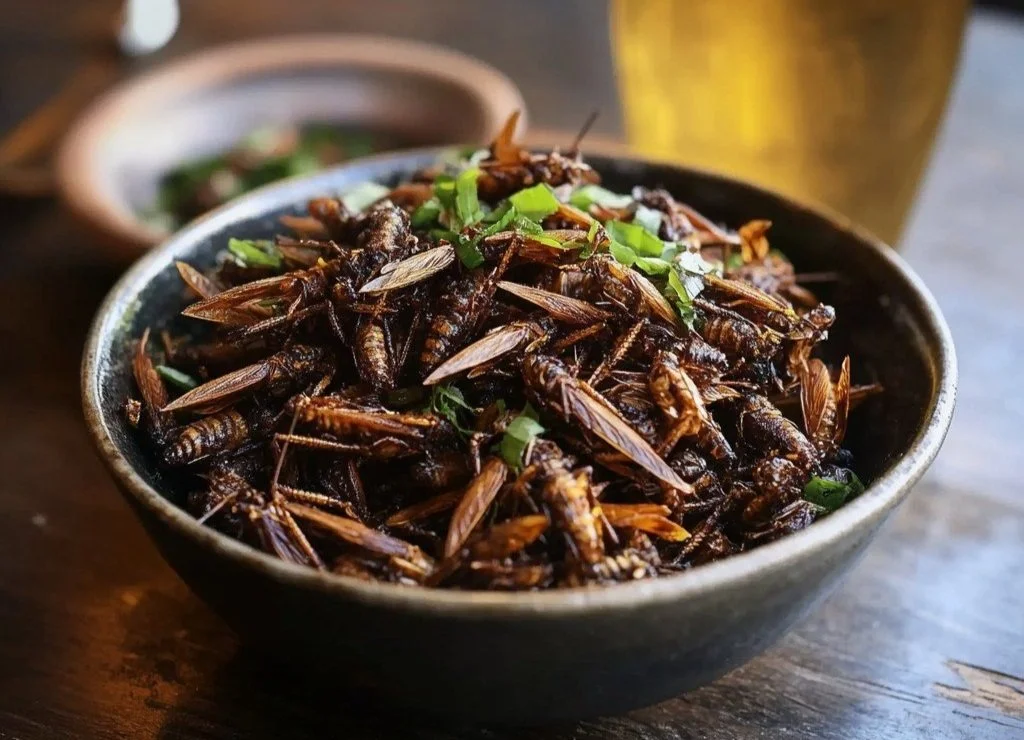New Peer-Reviewed Study Finds Disgust and other Factors Prevent Consumers from Biting on “Insect Meat”
A new peer-reviewed study, Beyond the Buzz: Insect-based Foods are Unlikely to Significantly Reduce Meat Consumption, reveals that multiple factors, including deep-seated cultural norms and strong feelings of disgust, present significant obstacles to the widespread adoption of entomophagy in Western cultures. The research, co-authored by our Executive Director, Dr. Dustin Crummett, identifies several barriers impeding industry efforts to establish insects as a sustainable alternative to traditional meat sources. These include not only the ‘yuck’ factor associated with eating insects, but also concerns about taste, texture, affordability, availability and convenience.
While farmed insects may be more environmentally-friendly than conventional meat, the study notes that its sustainable profile is not enough to persuade consumers to incorporate insects into their diets as a regular replacement for meat. As a point of comparison, the study notes that ordinary sources of plant protein are already environmentally friendlier than both insects and conventional meat, yet overall, few consumers have abandoned meat. The study notes that appearance, taste and price are the most important factors for consumers who are motivated to shift to meat substitutes regularly. Alternative proteins such as plant-based meats, which show far higher consumer acceptance, appear far more promising as potential meat substitutes.
The new research, published yesterday in the prestigious Nature journal npj Sustainable Agriculture, dispels the most promising application of insect protein: a more efficient and sustainable–but, as it turns out, very unappetizing–substitute for traditional meat. The study results align with the actual practices of the farmed insect industry, which has all but abandoned the edible insect market in favor of turning insect protein into premium livestock feed and pet food, due to the uphill battle to launch edible insects as a viable product. These uses are environmentally unsustainable and economically uncompetitive: when insect protein is used as a replacement for traditional livestock and farmed fish feed, it is typically more resource-intensive, as a recent UK government-commissioned LCA comparing black soldier fly larvae to soy meal and fish meal revealed. However, some companies continue to make direct comparisons to meat in their marketing materials–comparisons which would be meaningful only if insects were substituting for meat. The new research helps clarify insect protein’s role going forward and casts doubt on any such claims.
At the Insect Institute, we’re committed to conducting evidence-based assessments of the insect farming industry to get an accurate picture of how it is operating, its role in the agricultural supply chain, and its impacts on the environment, the economy, biodiversity, and animal welfare. More research on the overall environmental impacts of insect farming will be published in the coming months. To access additional peer-reviewed articles on insect farming’s shortcomings, please visit our Published Research webpage.

